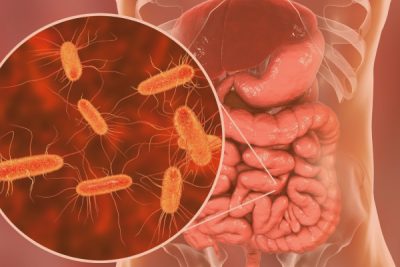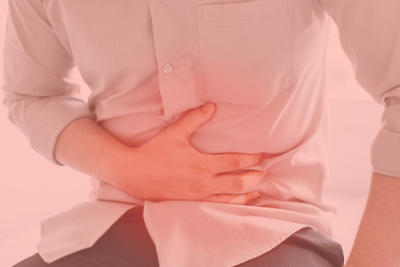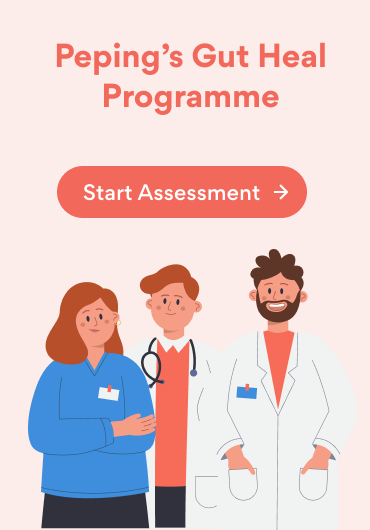Stress today has become a prevalent issue affecting individuals of all ages. While the psychological and emotional toll of stress is now well-known, its impact on physical health, particularly gut health, is often underestimated. This article aims to explore the relationship between stress and gut health. highlighting the physiological mechanisms involved and the implications for overall well-being.
The Physiology of Stress and Its Influence on the Gut
Stress may cause or worsen Inflammatory Bowel Disease (IBD), which includes Crohn’s disease and Ulcerative colitis, Irritable Bowel Disease (IBS), Gastroesophageal Reflux Disease (GERD), Peptic Ulcer Disease (PUD), and other GI conditions. Here, we’ll look at a few things that might make this happen.
Hypothalamic, Pituitary, and Adrenal (HPA) system
The body’s stress system is made up of the Hypothalamic-Pituitary-Adrenal (HPA) axis. Stress is picked up by the hypothalamus, which is the main control center of the brain. When it does, it sends a hormone to the pituitary gland, which directs how hormones work in the body. The pituitary gland then sends a hormone to the adrenal glands to let them know that we are under stress.
Cortisol is one of the hormones released by the adrenal glands to help the body deal with stress. Cortisol changes many parts of the body’s metabolism, including blood sugar and blood pressure. It also has a big effect on the GI system, causing the stomach to empty less, the gut to contract and move more (diarrhea), and the GI to become more sensitive, which can cause heartburn symptoms without an increase in stomach acid.
Microbiome-Gut-Brain Axis (MGBA)
The microbiome-gut-brain axis (MGBA) is another link that is very important when talking about stress and gut health. The bacteria, viruses, and fungi that live in our large gut are part of the microbiome. We have a mutual relationship with these microbes, which means that they benefit from us by living in us, and we benefit from them because they are important for digestion, absorption, immune function, hormone production, and more.
The HPA is thought to be one way that the MGBA is changed. Studies have shown that stress can change the makeup of the microbiome, which can cause dysbiosis or an imbalance between the good and bad bacteria in the gut. This can have a big effect on how the microbiome works.
Increased intestinal permeability, also called “leaky gut”
Stress may also cause a condition called “leaky gut,” which means that your intestines leak more easily. Some nutrients and signaling molecules move from the small intestine into the bloodstream in a very controlled way when everything is normal. But if the small intestine is more permeable, unwanted bits can get into the bloodstream and do things like to cause the body to make inflammatory markers. It is thought that an inflammatory marker is also to blame for greater permeability. Lipopolysaccharide (LPS) is made by dangerous bacteria in the microbiome. When LPS levels are high, they can make the intestines more permeable.
Stress-Related Disorders and Gut Health
Stress has been closely linked to various gastrointestinal disorders, particularly irritable bowel syndrome (IBS) and inflammatory bowel disease (IBD). Individuals with IBS often experience abdominal pain, bloating, and altered bowel habits. These symptoms can be triggered or worsened by stress. Similarly, stress can contribute to the onset or exacerbation of symptoms in individuals with IBD, a chronic inflammatory condition affecting the digestive tract.
The exact mechanisms underlying the relationship between stress and these disorders are not fully understood. However, it is believed that stress can lead to heightened sensitivity of the gut, causing increased pain perception and altered gut motility. Additionally, stress may promote inflammation in the gut, further aggravating symptoms in individuals with IBD.
Gut Microbiota and Stress
The gut microbiota, a complex community of microorganisms residing in our digestive system, plays a crucial role in maintaining gut health. Stress can have a significant impact on the composition and diversity of the gut microbiota, leading to a state of dysbiosis. Dysbiosis refers to an imbalance between beneficial and harmful bacteria in the gut.
Research suggests that stress-induced dysbiosis can contribute to gastrointestinal symptoms and increase susceptibility to stress-related disorders. The altered microbial composition may disrupt the gut barrier function, allowing harmful substances to penetrate the intestinal lining and trigger an inflammatory response. Furthermore, dysbiosis can affect the production of neurotransmitters, such as serotonin, which is involved in mood regulation and gut function.
The bidirectional relationship between the gut microbiota and stress is increasingly recognized. The gut microbiota can influence stress resilience and mood through the production of neurotransmitters and the modulation of the stress response. Conversely, stress can impact the gut microbiota composition, further affecting mental well-being.
Coping with Stress and Promoting Gut Health
Managing stress is crucial for maintaining a healthy gut and overall well-being. Adopting stress reduction techniques can help mitigate the impact of stress on the gut. Relaxation exercises, such as deep breathing, meditation, and mindfulness, can activate the body’s relaxation response and counteract the effects of stress. Engaging in regular physical activity and exercise has also been shown to reduce stress levels and promote gut motility.
Diet and nutrition play a significant role in supporting gut health during times of stress. Adequate fiber intake is essential for maintaining regular bowel movements and promoting healthy gut microbiota. Consuming a variety of fruits, vegetables, whole grains, and legumes can provide the necessary fiber. Additionally, staying adequately hydrated is important for maintaining optimal digestive function.
Medicine lab tests for Gut Problems Caused by Stress
Testing for Cortisol
Cortisol is one of the main stress hormones that the body makes. Cortisol is needed for life, and in the right amounts, it can be very helpful. But being exposed to a lot of cortisol for a long time can be bad. Cortisol is also released based on our body’s 24-hour cycle. Long-term worry can change our circadian rhythm, which can change when cortisol is released and harm our health. Testing cortisol levels throughout the day can tell you when and how cortisol is made and released, which can help you figure out if your gut health problems are caused by stress.
Precision Analytical’s Cortisol Awakening Response (CAR) test will show cortisol levels at different times of the day, including the important morning release, which sets the tone for the rest of the day. This test also measures the amount of cortisone, which is the inactive form of cortisol. Cortisol and cortisone are both important to look at because they can switch places based on genetics and the environment.
Complete Analysis of Stools
A thorough stool test will tell you a lot about the microbiome. Diagnostic Solutions’ GI-MAP looks at feces samples for different kinds of microbes in the GI system, such as pathogens or harmful microbes. It will also tell the amount of calprotectin, which is the best way to tell if there is inflammation in the GI tract. This test can also include zonulin, which is a sign of a more permeable intestine.
Small Intestine Bacterial Overgrowth (SIBO)
SIBO is a disease that happens when microbes from the large intestine’s microbiome move into the small intestine. Even though these microbes are good for the big intestine, they cause problems in the small intestine, like making digestion and absorption harder. Cortisol, which is a stress hormone, can play a role in the development of SIBO. The best way to check for this is via a breath test.
11 Tips to Improve Digestive Health
- Eat a diet rich in fiber: Your digestive health can be enhanced by eating a high-fiber diet full of whole grains, vegetables, fruits, and legumes. You are less likely to get constipation if you consume a high-fiber diet, which helps keep food moving through your digestive system. Additionally, a high-fiber diet can aid in the prevention or treatment of a number of digestive issues, including diverticulosis and hemorrhoids. It can also assist you in achieving or maintaining a healthy weight.
- Purchase both soluble and insoluble fiber: Both types of fiber are necessary to consume because they support your digestive system in various ways. According to Adams, insoluble fiber, commonly referred to as roughage, cannot be digested by the body and hence helps add bulk to the feces. “Soluble fiber draws in water and can aid in preventing overly watery stools,” Wheat bran, fruits, and whole grains are excellent sources of soluble fiber, whereas oat bran, nuts, seeds, and legumes are good sources of insoluble fiber.
- Avoid foods with a lot of fat: Fatty foods generally slow down your digestion, increasing your risk of constipation. But since it’s crucial to consume some healthy fat, combining fatty foods with high-fiber foods can make the process go more easily.
- Opt for lean meat: A healthy diet must include protein, however consuming fatty meat might cause stomach issues. When eating meat, choose lean cuts like skinless chicken and pig loin, and watch your portion sizes. Instead, load up more of your plate with fiber-rich whole grains, fruits, and vegetables.
- Add probiotics and prebiotics to your daily diet: The beneficial bacteria and yeasts found in probiotics are similar to those found in your digestive tract naturally. They protect the body from the negative effects of stress, antibiotics, and bad food. Probiotics can also boost nutritional absorption, aid in the breakdown of lactose, boost immunity, and perhaps even aid in the treatment of IBS. Daily consumption of probiotic-rich foods like kefir or low-fat yogurt is common.
- If you experience digestive problems, consider a low-FODMAP diet: Carbohydrates known as fermentable oligosaccharides, disaccharides, monosaccharides, and polyols (FODMAP) might be challenging for some people to digest. The low FODMAP diet may provide some comfort if you have IBS or merely live with symptoms like stomach cramping, gas, bloating, and diarrhea. This diet is supposed to be adhered to for a brief length of time in order to identify which items should be avoided as triggers for easier digestion.
- Eat regularly: Regularly eating meals and nutritious snacks helps keep your digestive system in good condition. For breakfast, lunch, dinner, and snacks, try to eat at roughly the same time every day.
- Maintain hydration: Drinking a lot of water is beneficial for your digestive system. Fiber draws water into the colon to make stools that are softer and more bulky, which makes them easier to pass through.
- Avoid using excessive amounts of caffeine and alcohol, as well as smoking: Smoking, drinking alcohol, and consuming excessive amounts of coffee or other caffeinated beverages can all affect how well your digestive system works and cause issues like stomach ulcers and heartburn.
- Get rid of your habits: Regular activity helps keep food moving through your digestive tract, which lowers the risk of constipation. Maintaining a healthy weight is another benefit of staying active for your digestive system. Make it a point to schedule consistent exercise throughout your week.
- Relieve tension: Your digestive system may become overactive if you experience too much stress or anxiety. Find relaxing activities you like to do and engage in them frequently.
Seeking Professional Help
If you experience persistent gut issues related to stress or suspect an underlying condition, it is important to consult with healthcare professionals. They can provide appropriate guidance, recommend further diagnostic tests if necessary, and develop an individualized treatment plan to address your specific needs.
Conclusion
In conclusion, stress has a profound impact on gut health. Understanding the physiological mechanisms involved and taking proactive measures to manage stress can promote a healthy gut and overall well-being. Recognizing the intricate connection between the mind and the gut allows for a holistic approach to health that considers both physical and mental aspects. Prioritizing stress reduction techniques, adopting a gut-friendly diet, and implementing lifestyle modifications can lead to improved gut health and a higher quality of life.













